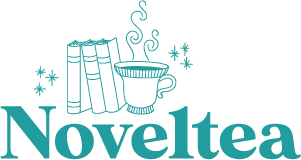Full disclosure: these ramblings are entirely the private thoughts of this book fanatic. I have read a lot of classics though. One of my mother’s accidentally brilliant moves was when she bought a bunch of very cheap anthologies and left them in my bedroom when I was a teenager. My parents also had an extensive collection of The Great Writers Library classics. I have always been a sucker for pretty books and this was pre-mobile phone so it wasn’t long before I read my way through all the anthologies and many classics.
So anyhoo…what makes a book a classic? Why are some books more classic than others? Who decides?
Well the obvious, short answer to the last one is the publisher. But I suspect it’s not as simple as that. I would imagine for modern classics it’s a combination of cost of rights, popularity and critical success. What about books past the copyright expiration (70 years after death of author)? Do they automatically get classic status because people today read more into them than was intended? When first published, Austen’s work was viewed like today’s chick lit and disparaged as such. Eighty years from now, will Bridget Jone’s Diary be classed together with Pride and Prejudice as a critical indictment of society’s treatment of women of the late 20th century?
Yet just like movies, what makes a book a classic is very much subjective. One person’s Godfather is another person’s Top Gun. Similarly I get that not everyone will love Wuthering Heights like I do.
So here’s what I think. I think everyone should get to choose their own classics. If you think Bridgerton should be read through the ages, then you go right ahead and recommend it to everyone you know.
This means that no one is allowed to diss anyone else’s reading habits. This includes those fusty old books from a century ago that make for great soporifics for many.
I will always be grateful to my parents for their passive force feeding of the classics because I honestly don’t have the time or patience to read them today except at 1.5x speed on audio. I tried to listen to War and Peace as a reread of it, but even that was just…too…slow…. So my point is that if your current life journey means it gives you more stress than pleasure to give the classics the time they deserve, then you shouldn’t feel pressured by anyone to read anything you don’t want to.
However, if you do have the time and inclination, I would highly recommend giving them a try. The language can be stilted and there will be a lot of descriptions (I skipped an entire chapter of a description of the view of Paris from the roof of the Notre Dame in The Hunchback of Notre Dame) and also more philosophising (also skipped a lot of that in War and Peace). But it is totally worth it.
There are “lighter” ones that read more easily. Wilkie Collin’s mysteries are highly readable even today. Or more modern ones like Hemingway, Steinbeck, Maugham or Burgess. They span all genres as well and even children will read Verne. The best part? Many of them are free of copyright and widely available online in full.
Need recommendations? Drop me a line! Or check out some of the previous blog posts with book lists. Coming soon will be a list of books “ahead of their time”.


